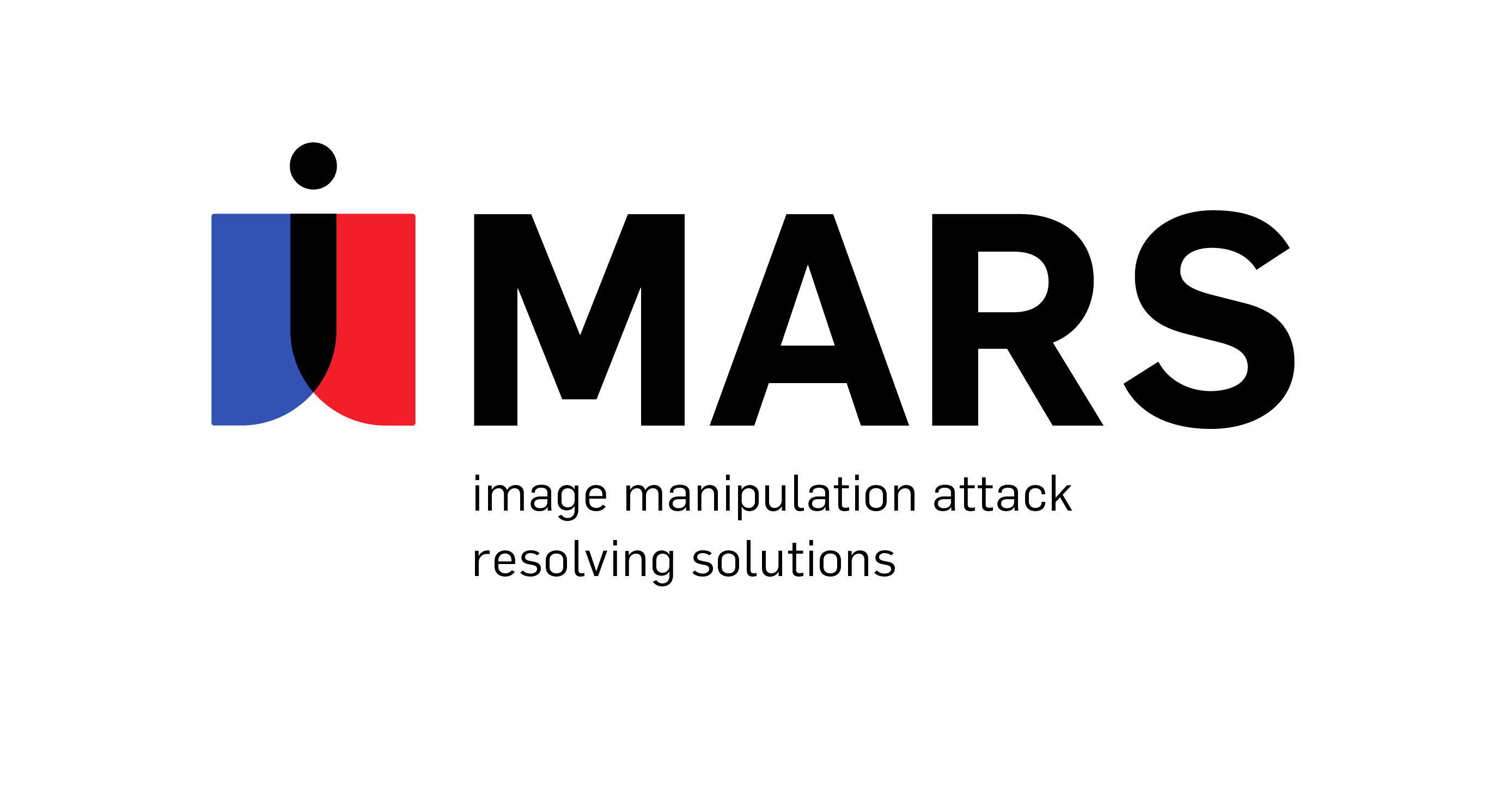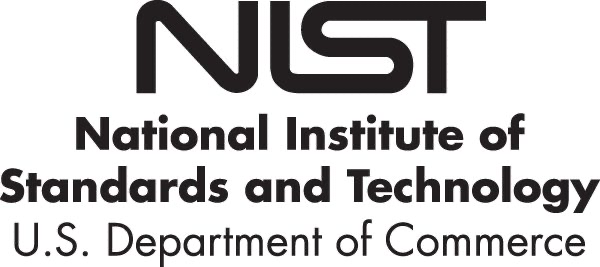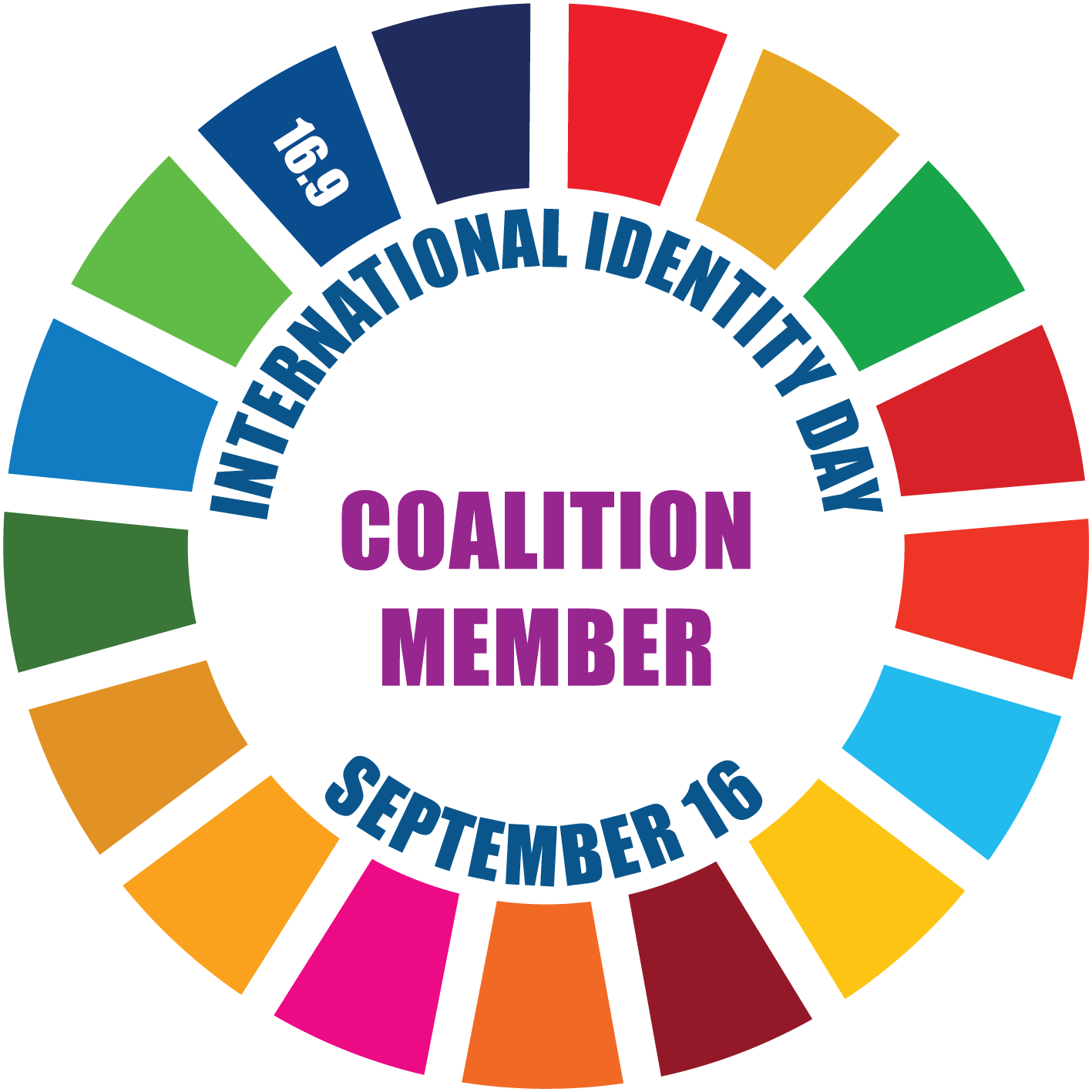Past Events
2021
International Workshop on Face and Gesture Analysis for COVID-19 – held in conjunction with FG 2021
| Date: | 2021-12-15 - 2021-12-18 | Location: | Jodhpur, India (Hybrid Event) |
|---|
Organizer: Istanbul Technical University (Turkey), Karlsruhe Institute of Technology (Germany), Qatar Computing Research Institute (Qatar), University of Ljubljana (Slovenia) and Carnegie Mellon University (Pittsburgh, USA) in cooperation within h the European Association for Biometrics
Speakers: Naser Damer (Fraunhofer IGD, Germany) Albert Ali Salah (Utrecht University, The Netherlands)
Program (ext.)
The Biometric Field Guide to Presentation Attack Detection
| Date: | 2021-12-14 (12:30-13:30 CEST) | Location: | EAB Virtual Lunch Talk |
|---|
Organizer: European Association for Biometrics (EAB) Attendance is free of charge but registration is required. Registered participants will receive dial-in credentials in the morning of the event.
Program
German TeleTrusT Biometrics Working Group
| Date: | 2021-12-07 (10:00-17:00 CEST) | Location: | This will be a virtual meeting. Dial-in credentials will be distributed in early morning of the meeting day. |
|---|
Organizer: German TeleTrusT Biometrics Working Group in cooperation with the European Association of Biometrics
Attendance is free of charge, Registration is required.
Please note that most presentations will be held in german language!
Program
EAB's 10th anniversary
| Date: | 2021-11-17 (19:00-22:00 CEST) | Location: | Darmstadt, Germany |
|---|
Attendance is for EAB members only and free of charge but registration is required. Registered participants will receive more information closer to the date of the event.
Program
Workshop on Face Image Quality
| Date: | 2021-11-16 (13:15 CEST) - 2021-11-18 (19:00 CEST) | Location: | This will be a virtual event. |
|---|
Organizer: European Association for Biometrics (EAB) in cooperation with DHS Office of Biometric Identity Management, National Institute of Standards and Technology (NIST), European Union Agency for the Operational Management of Large-Scale IT Systems in the Area of Freedom, Security and Justice (eu-LISA), the ISO/IEC JTC1 SC37 working group 3 and project iMARS
Program
Multiview Object Classification Methods Applied to Face Identification
| Date: | 2021-11-16 (12:30-13:30 CEST) | Location: | EAB Virtual Lunch Talk |
|---|
Organizer: European Association for Biometrics (EAB) Attendance is free of charge but registration is required. Registered participants will receive dial-in credentials in the morning of the event.
Speakers: Weronika Gutfeter
Program
Artificial Intelligence Act Workshop
| Date: | 2021-11-10 (13:00-18:00 CEST) | Location: | This will be a virtual event |
|---|
Organizer: European Association for Biometrics (EAB) in cooperation with German Biometrics Standardisation Group at DIN Attendance is free of charge but registration is required. Registered participants will receive dial-in credentials the evening before the event via email.
Program
What Does the EU AI Regulation Mean for the Biometrics Community?
| Date: | 2021-11-02 (12:30-13:30 CEST) | Location: | EAB Virtual Lunch Talk |
|---|
Organizer: European Association for Biometrics (EAB) Attendance is free of charge but registration is required. Registered participants will receive dial-in credentials in the morning of the event.
Speakers: Oliver Haase
Program
Norsk Biometri Forum Meeting
| Date: | 2021-10-20 (09:30-15:30 CEST) | Location: | This will be a virtual meeting. |
|---|
Organizer: Norwegian Biometric Forum in cooperation with the European Association for Biometrics Attendance is free of charge but registration is required. Registered participants will receive dial-in credentials the evening before the event via email. All times are given in CEST.
Program
Biometrics, Facial Recognition and the Fundamental Rights of Migrants
| Date: | 2021-10-19 (12:30-13:30 CEST) | Location: | EAB Virtual Lunch Talk |
|---|
Organizer: European Association for Biometrics (EAB) Attendance is free of charge but registration is required. Registered participants will receive dial-in credentials in the morning of the event.
Program
Bias Mitigation in Anti-Spoofing through Knowledge Distillation
| Date: | 2021-10-05 (12:30-13:30 CEST) | Location: | EAB Virtual Lunch Talk |
|---|
Organizer: European Association for Biometrics (EAB) Attendance is free of charge but registration is required. Registered participants will receive dial-in credentials in the morning of the event.
Speakers: Idriss Mghabbar
Program
Deciphering and Generating Faces
| Date: | 2021-09-21 (12:30-13:30 CEST) | Location: | EAB Virtual Lunch Talk |
|---|
Organizer: European Association for Biometrics (EAB) Attendance is free of charge but registration is required. Registered participants will receive dial-in credentials in the morning of the event.
Speakers: Antitza Dantcheva
Program
BIOSIG 2021 – 20th International Conference of the Biometrics Special Interest Group
| Date: | 2021-09-16 (10:00 CEST) - 2021-09-17 (15:45 CEST) | Location: | This will be a virtual event. |
|---|
Organizer: GI Special Interest Group BIOSIG in cooperation with BSI, Fraunhofer IGD, JRC, CAST e.V. and IEEE
Speakers: Istvan Racz (eu-LISA), Brandan Klare (Rank One Computing, U.S.), Richa Singh (IIT Jodhpur, India)
Program (ext.)
EAB Biometrics Training
| Date: | 2021-09-16 (09:00 CEST) - 2021-09-17 (15:30 CEST) | Location: | This will be a virtual event |
|---|
Organizer: European Association for Biometrics (EAB) Fees are non-refundable as from 7 days before the start of the event.
Registered participants will receive dial-in credentials the evening before the event via email.
Program
European Biometrics Max Snijder, Research, and Industry Awards 2021
| Date: | 2021-09-15 (16:30-21:30 CEST) | Location: | This will be a virtual event. |
|---|
Organizer: European Association for Biometrics (EAB) Attendance is free of charge but registration is required. Registered participants will receive dial-in credentials the evening before the event via email.
Program
11th EAB General Assembly
| Date: | 2021-09-13 (18:30-20:30 CEST) | Location: | This will be a virtual event. |
|---|
Organizer: European Association for Biometrics (EAB) This event is for EAB members only.
Attendance is free of charge but registration is required.
Registered participants will receive dial-in credentials the evening before the event via email.
Program
EAB-RPC 2021 – EAB Research Projects Conference 2021
| Date: | 2021-09-13 (14:45 CEST) - 2021-09-15 (16:00 CEST) | Location: | This will be a virtual event. |
|---|
Organizer: The European Association for Biometrics (EAB) in cooperation with the Joint Research Center (DG-JRC) of the European Commission, and Fraunhofer IGD. Fees are non-refundable as from 7 days before the start of the event. Note: If you are not yet an EAB-member, please consider to register for membership first (starting from 95,00 € per year). You then can register for the EAB-RPC as an EAB-member for only 240,00 € instead of 360,00 €, which means an overall saving of 25,00 €!
Registered participants will receive dial-in credentials the evening before the event via email.
Program
German TeleTrusT Biometrics Working Group
| Date: | 2021-09-13 (09:30-14:30 CEST) | Location: | This will be a virtual event. |
|---|
Organizer: German TeleTrusT Biometrics Working Group in cooperation with the European Association of Biometrics Attendance is free of charge but registration is required.
Registered participants will receive dial-in credentials the evening before the event via email.
All meeting times are in Central European Summer Time (CEST).
Program
Towards building a resilient digital identity system with strong biometric binding
| Date: | 2021-09-07 (12:30-13:30 CEST) | Location: | EAB Virtual Lunch Talk |
|---|
Organizer: European Association for Biometrics (EAB) Attendance is free of charge but registration is required. Registered participants will receive dial-in credentials in the morning of the event.
Speakers: Norman Poh
Program
Horizon Europe open calls and pitch event (EAB members only)
| Date: | 2021-07-13 (12:30-15:00 CEST) | Location: | Virtual Workshop EAB Members Only |
|---|
Organizer: European Association for Biometrics (EAB)
Attendance is free of charge but registration is required.
Registered participants will receive dial-in credentials the morning of the event.
Please cancel your registration at least one day in advance if you can't make it to attend.
Program
Secure Voice Biometrics: Deepfake Speech Detection and ASVspoof
| Date: | 2021-06-29 (12:30-13:30 CEST) | Location: | EAB Virtual Lunch Talk |
|---|
Organizer: European Association for Biometrics (EAB)
Attendance is free of charge but registration is required. Registered participants will receive dial-in credentials in the morning of the event.
Speakers: Nicholas Evans
Program
Workshop on Fingerprint Image Quality (NFIQ 2.1)
| Date: | 2021-06-15 (13:30 CEST) - 2021-06-16 (19:00 CEST) | Location: | Virtual Workshop |
|---|
Organizer: European Association for Biometrics (EAB) in cooperation with National Institute of Standards and Technology (NIST), and the European Union Agency for the Operational Management of Large-Scale IT Systems in the Area of Freedom, Security and Justice (eu-LISA)
Attendance is free of charge but registration is required. Registered participants will receive dial-in credentials the morning of the event.
Program
A European perspective for the use of automated face recognition in criminal investigation
| Date: | 2021-06-15 (12:30-13:30 CEST) | Location: | EAB Virtual Lunch Talk |
|---|
Organizer: European Association for Biometrics (EAB)
Attendance is free of charge but registration is required. Registered participants will receive dial-in credentials in the morning of the event.
Speakers: Andra Sirgmets, Didier Meuwly
Program
Biometrics' NextGen: when privacy-by-design meets seamless user experience
| Date: | 2021-06-01 (12:30-13:30 CEST) | Location: | EAB Virtual Lunch Talk |
|---|
Organizer: European Association for Biometrics (EAB)
Attendance is free of charge but registration is required. Registered participants will receive dial-in credentials in the morning of the event.
Speakers: Sandra Cremer, Pascal Janer
Program
18th International Summer School for Advanced Studies on Biometrics for Secure Authentication: Biometrics for AI/AI for Biometrics
| Date: | 2021-05-31 - 2021-06-04 | Location: | Hybrid event (virtual and physical) at Hotel Dei Pini in the Capo Caccia bay, near Alghero, Sardinia |
|---|
Organizer: Computer Vision Laboratory DAP, University of Sassari, Italy in cooperation with the European Association for Biometrics
Advance pre-registration is strictly required by 2021-02-15!
To register please send a filled application form together with a short curriculum vitae by email to Dr Massimo Tistarelli
Speakers: Massimo Tistarelli, Josef Bigun, Enrico Grosso, Anil K. Jain ...
Program (ext.)
Norsk Biometri Forum Meeting
| Date: | 2021-05-27 (09:30-15:30 CEST) | Location: | This meeting will be a virtual meeting. Login-information will be provided in the morning of the meeting via email |
|---|
Organizer: Norwegian Biometric Forum in cooperation with the European Association for Biometrics
Attendance is free of charge, Registration is required
Program
An Overview of Touchless 2D Fingerprint Recognition
| Date: | 2021-05-18 (12:30-13:30 CEST) | Location: | EAB Virtual Lunch Talk |
|---|
Organizer: European Association for Biometrics (EAB)
Attendance is free of charge but registration is required. Registered participants will receive dial-in credentials in the morning of the event.
Speakers: Jannis Priesnitz
Program
PriMa's First Research Event 10 - 12th of May 2021
| Date: | 2021-05-10 - 2021-05-12 | Location: | Virtual Conference; access data will be sent to the participants the evening before the event. |
|---|
Organizer: PriMa in cooperation with the European Association for Biometrics (EAB)
Attendance is free of charge but registration is required.
Program
IWBF 2021 – 9th International Workshop on Biometrics and Forensics
| Date: | 2021-05-06 - 2021-05-07 | Location: | Universita Degli Studi Roma Tre, Department of Engineering, Via V. Volterra 62, 00146 Rome, Italy |
|---|
Organizer: Universita Degli Studi Roma Tre in cooperation with the European Association for Biometrics EAB
Program (ext.)
EAB-Members Meeting: Developing a Position Paper
| Date: | 2021-05-05 (10:00-12:00 CEST) | Location: | Virtual Workshop |
|---|
Organizer: European Association for Biometrics (EAB)
Attendance is for EAB members only and free of charge but registration is required. Registered participants will receive dial-in credentials the morning of the event.
Program
X-vectors: New Quantitative Biomarkers for Early Parkinson’s Disease Detection from Speech
| Date: | 2021-05-04 (12:30-13:00 CEST) | Location: | EAB Virtual Lunch Talk |
|---|
Organizer: European Association for Biometrics (EAB)
Attendance is free of charge but registration is required. Registered participants will receive dial-in credentials in the morning of the event.
Speakers: Dijana Petrovska-Delacrétaz
Program
EAB virtual events series – Workshop on Fingerprint Presentation Attack Detection
| Date: | 2021-04-29 - 2021-04-30 | Location: | Virtual Workshop; access data will be sent to the participants short before the event. |
|---|
Organizer: European Association for Biometrics (EAB) in cooperation with Hochschule Ansbach and Hochschule Darmstadt Organizing Committee: Dinusha Frings (EAB), Marta Gomez-Barrero (Hochschule Ansbach)
Fees are non-refundable as from 7 days before the start of the event. Please use the PayPal option at checkout.
Students have free access if they have a Students membership with the EAB. Please include your university email for verification purposes.
Program
EAB Virtual Events Series – Biometrics Challenges in the European Banking Ecosystem
| Date: | 2021-04-21 - 2021-04-23 | Location: | Virtual Conference; access data will be sent to the participants short before the event. |
|---|
Organizer: European Association for Biometrics (EAB) in cooperation with Cabinet Louis Reynaud (CLR Labs) Organizing Committee: Jean Salomon, Dinusha Frings, Stéfane Mouille (CLR Labs) Registration for the April 21, 2021 event will give you access to both conference day 1 and day 2. Entrance fees: normal: 200,00 € (excl. VAT) / EAB members: 100,00 € (excl. VAT) / Speakers, and Students with valid EAB Membership: 0,00 € Fees are non-refundable as from 7 days before the start of the event. Please use the PayPal option at checkout.
Students have free access if they have a Students membership with the EAB. Please include your university email for verification purposes.
Program
Biometric solutions for a future we can all trust
| Date: | 2021-04-20 (12:30-13:30 CEST) | Location: | EAB Virtual Lunch Talk |
|---|
Organizer: European Association for Biometrics (EAB)
Attendance is free of charge but registration is required. Registered participants will receive dial-in credentials in the morning of the event.
Speakers: Daniel Asraf, Jean-Claude Perrin
Program
Smartphone Biometrics for Banking – A Decade of Developments
| Date: | 2021-04-06 (12:30-13:30 CEST) | Location: | EAB Virtual Lunch Talk |
|---|
Organizer: European Association for Biometrics (EAB)
Attendance is free of charge but registration is required. Registered participants will receive dial-in credentials in the morning of the event.
Speakers: Kiran Raja
Program
EAB virtual events series – Demographic Fairness in Biometric Systems
| Date: | 2021-03-30 (13:30-17:10 CEST) | Location: | Virtual Conference; access data will be sent to the participants short before the event. |
|---|
Organizer: European Association for Biometrics (EAB) in cooperation with Hochschule Darmstadt and Fraunhofer IGD Organizing Committee: Dinusha Frings, Pawel Drozdowski (Hochschule Darmstadt), Christian Rathgeb (Hochschule Darmstadt), Naser Damer (Fraunhofer IGD)
Program
Many new kids on the block. Explaining and comparing the latest fingerprint technologies.
| Date: | 2021-03-23 (12:30-13:30 CEST) | Location: | EAB Virtual Lunch Talk |
|---|
Organizer: European Association for Biometrics (EAB)
Attendance is free of charge but registration is required. Registered participants will receive dial-in credentials in the morning of the event.
Speakers: Dirk Morgeneier
Program
German TeleTrusT Biometrics Working Group
| Date: | 2021-03-22 (10:00-17:00 CEST) | Location: | Virtual event. Access credentials will be distributed the evening before the event. |
|---|
Organizer: German TeleTrusT Biometrics Working Group in cooperation with the European Association of Biometrics
Attendance is free of charge, Registration is required.
Access data will be sent to the participants short before the event.
Program
What information is stored in face templates? And how does it relate to fairness?
| Date: | 2021-03-09 (12:30-13:30 CEST) | Location: | EAB Virtual Lunch Talk |
|---|
Organizer: European Association for Biometrics (EAB) This lunch talk is part of the EAB virtual events series on Demographic Fairness in Biometric Systems.
See March 15, 2020 for a full description of the events series.
Attendance is free of charge, but registration is required.
Registered participants will receive dial-in credentials on the morning of the event.
Speakers: Philipp Terhörst
Program
EAB/NBLAW 2021 – Norwegian Biometrics Laboratory Annual Workshop 2021
| Date: | 2021-03-03 (09:15-15:40 CEST) | Location: | Virtual Conference; access data will be sent to the participants the evening before the event. |
|---|
Organizer: Norwegian Biometrics Laboratory (NBL) in cooperation with the European Association for Biometrics (EAB)
Attendance if free of charge, Registration is required!
Program
Live Enrolment for German Identity Documents
| Date: | 2021-02-23 (12:30-13:30 CEST) | Location: | EAB Virtual Lunch Talk |
|---|
Organizer: European Association for Biometrics (EAB)
Attendance is free of charge but registration is required. Registered participants will receive dial-in credentials in the morning of the event.
Speakers: Stefan Pahmeier
Program
Fingerprints in forensic applications
| Date: | 2021-02-09 (12:30-13:30 CEST) | Location: | EAB Virtual Lunch Talk |
|---|
Organizer: European Association for Biometrics (EAB)
Attendance is free of charge but registration is required. Registered participants will receive dial-in credentials in the morning of the event.
Speakers: Martin Drahansky
Program
Verification of Banking Clients Based on Multimodal Biometrics
| Date: | 2021-01-26 (12:30-13:30 CEST) | Location: | EAB Virtual Lunch Talk |
|---|
Organizer: European Association for Biometrics (EAB)
Attendance is free of charge but registration is required. Registered participants will receive dial-in credentials in the morning of the event.
Speakers: Andrzej Czyżewski
Program
Is That Eye Dead or Alive? Recognition of Presentation Attacks in Iris Biometrics
| Date: | 2021-01-12 (12:30-13:30 CEST) | Location: | EAB Virtual Lunch Talk |
|---|
Organizer: European Association for Biometrics (EAB)
Attendance is free of charge but registration is required. Registered participants will receive dial-in credentials in the morning of the event.
Speakers: Adam Czajka
Program
xAI4Biometrics – Workshop on Explainable & Interpretable Artificial Intelligence for Biometrics at WAVC 2021
| Date: | 2021-01-05 (17:00-21:05 CEST) | Location: | Virtual workshop |
|---|
Organizer: INESC Technology and Science (INESC TEC), Porto, Portugal in partnership with the European Association of Biometrics (EAB)
Speakers: Prof. Peter Eisert (Fraunhofer HHI), Prof. Cynthia Rudin (Duke University)
Program (ext.)













![Banner on Fingerprint Image Quality (NFIQ2.1) [Illustration] Banner on Fingerprint Image Quality (NFIQ2.1)](/images/banners/2021-06-15_NFIQ21-banner.jpg) We are proud to announce that the European Association for Biometrics (EAB) together with the National Institute of Standards and Technology (NIST), European Union Agency for the Operational Management of Large-Scale IT Systems in the Area of Freedom, Security and Justice (eu-LISA), the ISO/IEC JTC1 SC37 working group 3 is about to organise a workshop to present an update for the latest development on NFIQ 2.1. This update will address through talks and panel discussions the following topics:
We are proud to announce that the European Association for Biometrics (EAB) together with the National Institute of Standards and Technology (NIST), European Union Agency for the Operational Management of Large-Scale IT Systems in the Area of Freedom, Security and Justice (eu-LISA), the ISO/IEC JTC1 SC37 working group 3 is about to organise a workshop to present an update for the latest development on NFIQ 2.1. This update will address through talks and panel discussions the following topics:





![Banner on Fingerprint PAD 2021 [Illustration] Banner on Fingerprint PAD 2021](/images/banners/banner-FPAD2021.jpg) The use of biometrics, and in particular the use of fingerprint recognition, is increasing day by day. Not only are we required (in European countries) to capture our fingerprints in order to obtain a passport, but we use them on a daily basis for other tasks such as unlocking our smartphones or confirming a bank transaction or payment.
The use of biometrics, and in particular the use of fingerprint recognition, is increasing day by day. Not only are we required (in European countries) to capture our fingerprints in order to obtain a passport, but we use them on a daily basis for other tasks such as unlocking our smartphones or confirming a bank transaction or payment.
![Banking Event Keyvisual [Illustration] Woman in front of huge mobile phone](/images/eab-biometrics_in_banking-2021.png) The European banking ecosystem is a hyper-regulated market, encompassing accounting policy, risk credit, and involving Agencies such as the EBA (European Banking Authority) in Anti-Money Laundering (AML) and counter-terrorism financing actions, on top of the overarching EU DG FISMA.
The European banking ecosystem is a hyper-regulated market, encompassing accounting policy, risk credit, and involving Agencies such as the EBA (European Banking Authority) in Anti-Money Laundering (AML) and counter-terrorism financing actions, on top of the overarching EU DG FISMA.
![Crowd illustration [Illustration] Crowd as pie chart](/upload/1611563899-news-biasws.jpg) Algorithmic decision systems have frequently been labelled as “biased”, “racist”, “sexist”, “unfair” by numerous media outlets, organisations, and researchers. Are such assessments justified? Should citizens and policymakers be concerned? What is the current state of the research? How can variation across demographic groups be quantified in evaluations of such systems? These and other related matters have recently become a hot topic in the context of biometric technologies, which are ubiquitous in personal, commercial, and governmental applications. Biometrics represent an integral component of many surveillance, access control and operational identity management systems, thus directly or indirectly affecting billions of people all around the world.
Algorithmic decision systems have frequently been labelled as “biased”, “racist”, “sexist”, “unfair” by numerous media outlets, organisations, and researchers. Are such assessments justified? Should citizens and policymakers be concerned? What is the current state of the research? How can variation across demographic groups be quantified in evaluations of such systems? These and other related matters have recently become a hot topic in the context of biometric technologies, which are ubiquitous in personal, commercial, and governmental applications. Biometrics represent an integral component of many surveillance, access control and operational identity management systems, thus directly or indirectly affecting billions of people all around the world.


